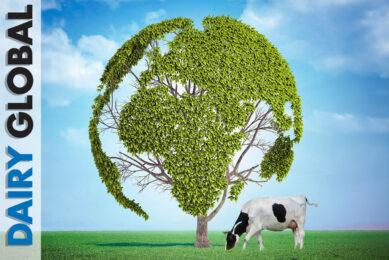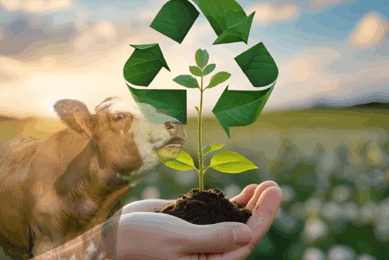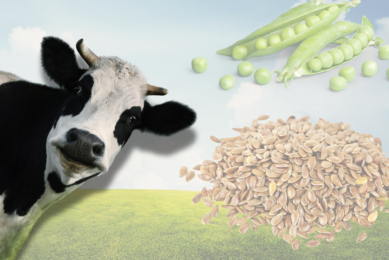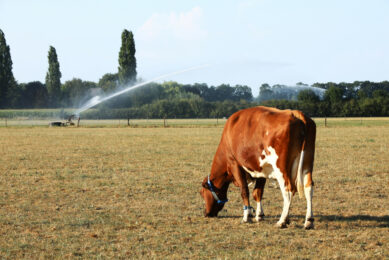Dutch politics could shape the future of its dairy industry
![The [Dutch] government aims to cut nitrogen emissions in half by 2030, as relatively large numbers of livestock and heavy use of fertilizers have led to levels of nitrogen oxides in the soil and water that violate European Union regulations. Photo: Canva](https://www.dairyglobal.net/app/uploads/2023/04/IMG_Dutchdairycows-848x565.jpg)
News has spread beyond borders about the victory of the BBB (BoerBurgerBeweging) Farmer-Citizen Movement in the Dutch provincial elections. Could the victory spell a new chapter for the dairy industry, as the nitrogen emission reduction laws are revisited?
Dutch provincial elections
As reported in a Reuters report, a farmers’ protest party shook up the political landscape in the Netherlands, emerging as the big winner in provincial elections that determine the make-up of the Senate.
The BBB party spearheaded a wave of protests on the government’s environmental policies in recent years and now they are set to challenge prime minister Mark Rutte’s conservative VVD party. The meteoric rise of BBB is a major blow for Rutte’s governing coalition, casting doubt over its aim to drastically cut nitrogen pollution on farms, the single issue upon which BBB was founded in 2019.
“Nobody can ignore us any longer,” BBB leader Caroline van der Plas told broadcaster Radio 1. “Voters have spoken out very clearly against this government’s policies,” she said.
The government aims to cut nitrogen emissions in half by 2030, as relatively large numbers of livestock and heavy use of fertilisers have led to levels of nitrogen oxides in the soil and water that violate European Union regulations. The nitrogen problem has crippled construction in the Netherlands as environmental groups have won a string of court cases ordering the government to limit emissions and preserve nature before new building permits can be granted.
But farming is also responsible for a large part of the problem, especially the dairy sector, and Van der Plas and her regional party leaders have said repeatedly that compulsory farm buyouts – as the government has mooted – are not an option. The BBB is also opposed to the government’s commitment to slash nitrogen compound emissions by 50% by 2030.
The BBB says the problem has been exaggerated and that proposed solutions are unfairly balanced against farmers and lead to the closure of many farms and food production shortages.
No-confidence vote over plans to cut nitrogen emissions
Reuters reports that Rutte’s government has faced a no-confidence vote over plans to cut nitrogen emissions on farms, 3 weeks after being beaten in provincial elections by the BBB party opposed to such cuts.
Rutte’s centre-right coalition is expected to survive the vote as its 4 parties together hold a slim majority in the 150-seat parliament, but the opposition’s move underlines the government’s vulnerability following the elections.
Opposition parties said during a parliamentary debate that the government had failed to offer any convincing policies to tackle nitrogen emissions as well as other issues such as high inflation and immigration. “Put the country’s interest first and quit today,” said Geert Wilders, leader of the far-right Freedom Party (PVV).
On the other hand, as reported by DutchNews.nl: “From a national perspective, we have made an agreement that nitrogen emissions will be halved by 2030,” Europe expert Rob Boudewijn told BNR radio. “You can ignore that but in the end, it could come down to Brussels forcing the Netherlands to take action. BBB would then become known as a very unreliable partner in the EU, which would not do the image of the Netherlands any good.”
Meanwhile, GHG emissions are falling
As per the DutchNews.nl report, the national statistics agency, CBS, shows that greenhouse gas emissions in the Netherlands fell by 9% last year as the industry, private homes and the farming sector cut back on their use of gas. This means that greenhouse gas emissions in 2022 were almost 32% down on those of 1990, and that is below the government target of a 25% reduction. The target was just met in 2020 and slightly exceeded in 2021.
Marjan Minnesma, who set up the Urgenda climate campaign which forced the government to act, welcomed the news but pointed out that 2022 was not a representative year. The reduction was mainly due to external factors, such as the energy crisis, she said. “It remains to be seen what will happen this year,” she told news agency ANP. “The government’s climate policy shows no sense of urgency.”
Cutting number of dairy farms to reduce emissions
One would wonder who voted for the BBB political party. Is it only the farmers? No, that’s not possible. The Netherlands has a population of more than 17 million people but only a total of 50,000 are farmers. The saying: “If the shoe fits, they will wear it” may help to explain that most people are in opposition to the government’s emission reduction policies and probably on more issues. The government’s shoes seem not fit for many.
In an interview, one of the BBB supporters, Arjan van der Kolk, an animal nutrition and research specialist at Feed Innovation Services, expressed concerns over the government’s nitrogen reduction policies, especially its impact on the dairy industry. He thinks the Dutch climate law target of a 55% reduction of GHG by 2030 is not realistic.
He spoke against the idea of cutting the number of dairies and emphasised the need for the government to consider several options to reduce these emissions, which include the use of additives to enhance protein digestion efficiency, reducing protein levels in feed (but without compromising health and performance of the animal) and the utilisation of innovations that he thinks the government is paying less attention to.
“The government seems to be paying less attention to innovative ideas that could help reduce emissions,” he said, adding, “Several companies are coming up with innovations worth adopting. Lely is one such company among others that has good ideas.”
Lely operates a Lely Sphere circular barn system that separates solid manure and urine and converts nitrogen emissions into valuable fertiliser. These can be reused by the farmer for precision fertilisation on the land. This way, a more closed mineral cycle is achieved, the use of artificial fertiliser decreases and the climate in the barn improves.
One of the research specialists at Lely highlighted that recent scientific reports show that with the Lely Sphere, ammonia emissions are reduced by an average of 77% in the barn.
As work starts on putting together the 12 provincial governments to form a stable coalition, the fate of the dairy industry and agricultural sector at large awaits.
Join 13,000+ subscribers
Subscribe to our newsletter to stay updated about all the need-to-know content in the dairy sector, two times a week.










